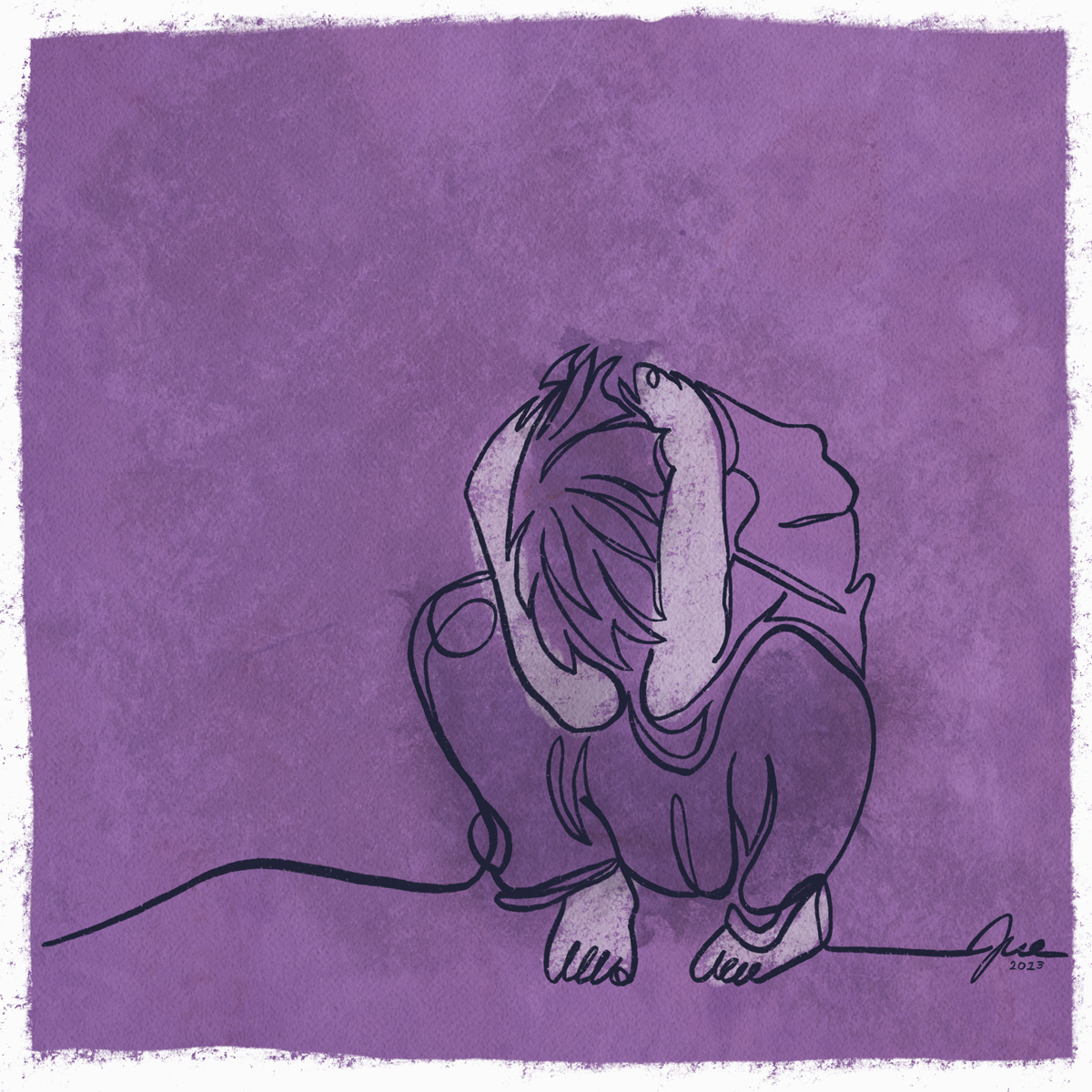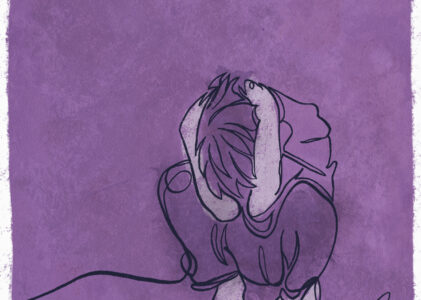If your child experiences a very disturbing or life-threatening situation, look out for these signs in the weeks, months (or even years) that follow.
Has your child ever experienced something really scary, damaging or threatening? Maybe they witnessed a terrible event, suffered a tragic loss, or endured periods of abuse, neglect or extreme stress?
If so, they aren’t alone. Research indicates that about 46% of children experience at least one traumatic event before age 18.
To make things more complicated, it’s not always obvious which situations will traumatize a given child. What might seem like “daily life” to one person can feel traumatic to another. For example, one child might experience bullying at school and brush it off while another might sustain lasting emotional distress.
Since trauma can affect your child’s wellbeing long-term, it’s important to recognize the signs so that you can get help if needed. Read on to learn more.

Illustrated by Joseph Moore
What is Traumatic Stress?
Traumatic stress is a normal response to an abnormal situation. Fear triggers a “fight-or-flight” response and causes one’s body to release certain hormones and increase blood pressure, heart rate and alertness.
Most people recover from this naturally. However, some people continue to feel frightened and stressed long after the trauma has ended. Certain risk factors, like experiencing prolonged trauma, make this lingering stress more likely to occur.
In some people, trauma symptoms don’t start right away and take weeks, months or even years to surface.
If a child experiences intense symptoms that interfere with their daily activities and don’t get better on their own, they may have post-traumatic stress disorder (PTSD).
Signs of Trauma in Children
Not all children express traumatic stress in the same way and young children may react differently than older children. Many symptoms of traumatic stress overlap with symptoms of depression and anxiety.
In general, these symptoms represent a noticeable change from a child’s typical behavior.
Signs in Preschool Children
- Frequent crying, tearfulness or screaming
- Nightmares
- Eating poorly or losing weight
- Fear of being separated from parents or caregivers
- Regressive behavior like returning to bedwetting or baby talk
- Asking questions about death
- Recreating the trauma through play
Signs in Elementary School Children
- Becoming clingy with a teacher or parent
- Worrying about safety (their own or others’)
- Feeling guilt or shame
- Becoming anxious and fearful
- Trouble concentrating
- Seeming emotionally numb
- Startling easily
- Difficulty sleeping
- Changes in school performance
Signs in Middle and High School Children
- Feeling depressed and alone
- Engaging in self-harming behaviors like cutting
- Developing eating disorders
- Feeling different from everyone else
- Engaging in risky behaviors such as abusing drugs and alcohol, becoming more sexually active
- Avoiding places that remind them of the event
- Saying that they have no feeling about the event
It’s important to note that the presence of one or more of these symptoms does not, in and of itself, mean that a child has experienced trauma. These behavior changes often occur in children with traumatic stress. However, they can be associated with other situations and diagnoses.
If you think your child may exhibit signs of trauma, it’s beneficial to obtain a thorough evaluation from a licensed mental health professional to determine how to best help your child.
Treatment for traumatic stress in children
Trauma-Focused Cognitive-Behavioral Therapy (TF-CBT)
TF-CBT is an evidence-based method for treating traumatic stress in children and is often considered the gold standard. During TF-CBT, the child will discuss the traumatic event, learn anxiety management techniques (e.g., relaxation and assertiveness training), and unpack distorted or inaccurate thoughts related to the trauma.
In addition to working with the child, a CBT therapist will often provide psycho-education for parents about traumatic stress and how to best support their child through the process of recovery.
Play therapy
Play therapy can help young children process traumatic memories through games, drawings and other activities. This is especially useful when a child is unable to deal with the trauma more directly.
Next Steps
If your child shows signs of emotional distress, they might benefit from working with a mental health professional.
Call your doctor or contact Athena Care, for mental health care in Tennessee.
One of our Care Coordinators will help you get the care you need.

Rachel Swan, MS
Editor
Rachel has a Masters of Science in Clinical Psychology from Vanderbilt University, where she spent 16 years as a Research Analyst in the Psychology and Human Development Department.


